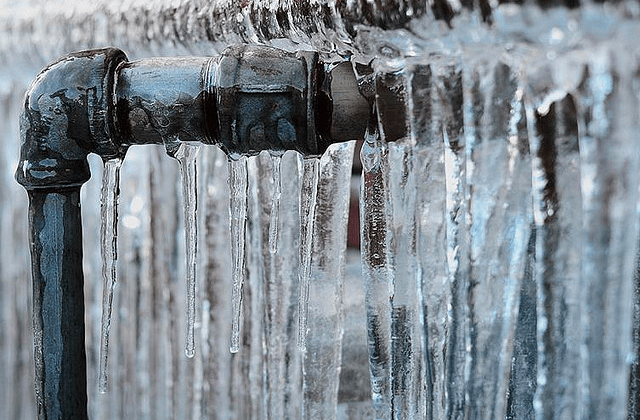Do you find yourself looking for ideas concerning Helpful Tips to Prevent Frozen Pipes this Winter?

Winter can damage your pipes, particularly by freezing pipelines. Here's exactly how to stop it from happening and what to do if it does.
Intro
As temperature levels drop, the danger of icy pipelines increases, possibly bring about costly repair work and water damages. Recognizing just how to stop icy pipelines is important for house owners in chilly environments.
Recognizing Icy Pipes
What triggers pipes to freeze?
Pipelines ice up when subjected to temperatures below 32 ° F (0 ° C) for extended durations. As water inside the pipelines freezes, it increases, taxing the pipe wall surfaces and potentially creating them to rupture.
Risks and problems
Frozen pipelines can cause supply of water disturbances, residential property damage, and costly fixings. Ruptured pipes can flood homes and create extensive structural damages.
Signs of Frozen Water Lines
Recognizing frozen pipes early can avoid them from breaking.
How to recognize frozen pipelines
Search for reduced water circulation from taps, uncommon smells or noises from pipes, and noticeable frost on exposed pipes.
Prevention Tips
Insulating susceptible pipelines
Cover pipelines in insulation sleeves or make use of warmth tape to secure them from freezing temperatures. Concentrate on pipes in unheated or external locations of the home.
Home heating techniques
Keep indoor rooms sufficiently heated, specifically locations with plumbing. Open up cupboard doors to enable warm air to flow around pipes under sinks.
Safeguarding Exterior Plumbing
Yard hose pipes and exterior faucets
Separate and drain yard hoses prior to winter season. Mount frost-proof spigots or cover exterior faucets with protected caps.
What to Do If Your Pipelines Freeze
Immediate actions to take
If you believe frozen pipes, maintain faucets open up to relieve stress as the ice melts. Utilize a hairdryer or towels taken in hot water to thaw pipes slowly.
Long-Term Solutions
Architectural adjustments
Consider rerouting pipelines far from outside wall surfaces or unheated locations. Include added insulation to attic rooms, cellars, and crawl spaces.
Updating insulation
Purchase high-quality insulation for pipelines, attic rooms, and wall surfaces. Appropriate insulation assists preserve constant temperatures and reduces the threat of icy pipes.
Verdict
Protecting against icy pipes requires aggressive actions and quick responses. By comprehending the causes, indicators, and preventive measures, home owners can safeguard their pipes during winter.
Helpful Tips to Prevent Frozen Pipes this Winter
UNDERSTANDING THE BASICS: WHY PIPES FREEZE AND WHY IT’S A PROBLEM
Water freezing inside pipes is common during the winter months, but understanding why pipes freeze, and the potential problems it can cause is crucial in preventing such incidents. This section will delve into the basics of why pipes freeze and the associated problems that may arise.
THE SCIENCE BEHIND FROZEN PIPES
When water reaches freezing temperatures, it undergoes a physical transformation and solidifies into ice. This expansion of water as it freezes is the primary reason pipes can burst. As the water inside the pipe freezes, it expands, creating immense pressure on the walls. If the pressure becomes too great, the pipe can crack or rupture, leading to leaks and water damage.
FACTORS THAT CONTRIBUTE TO PIPE FREEZING
Low Temperatures: Extremely cold weather, especially below freezing, increases the risk of pipes freezing. Uninsulated or Poorly Insulated Pipes: Pipes located in unheated areas, such as basements, crawl spaces, or attics, are more prone to freezing. Insufficient insulation or lack of insulation altogether exacerbates the problem. Exterior Wall Exposure: Pipes running along exterior walls are susceptible to freezing as they encounter colder temperatures outside. Lack of Heating or Temperature Regulation: Inadequate heating or inconsistent temperature control in your home can contribute to frozen pipes. PROBLEMS CAUSED BY FROZEN PIPES
- Pipe Bursting: As mentioned earlier, the expansion of water as it freezes can cause pipes to burst, resulting in significant water damage.
- Water Damage: When pipes burst, it can lead to flooding and water damage to your property, including walls, ceilings, flooring, and personal belongings.
- Structural Damage: Prolonged exposure to water from burst pipes can compromise the structural integrity of your home, leading to costly repairs.
- Mold and Mildew Growth: Excess moisture from water damage can create a favorable environment for mold and mildew growth, posing health risks to occupants.
- Disrupted Water Supply: Frozen pipes can also result in a complete or partial loss of water supply until the issue is resolved.
WHY CERTAIN PIPES ARE MORE PRONE TO FREEZING
- Location: Pipes located in unheated or poorly insulated areas, such as basements, crawl spaces, attics, or exterior walls, are at higher risk of freezing.
- Exterior Pipes: Outdoor pipes, such as those used for irrigation or exposed plumbing, are particularly vulnerable to freezing as they are directly exposed to the elements.
- Supply Lines: Pipes that carry water from the main water supply into your home, including the main water line, are critical to protect as freezing in these lines can affect your entire plumbing system.
- Underground Pipes: Pipes buried underground, such as those connected to sprinkler systems or outdoor faucets, can be susceptible to freezing if not properly insulated.
https://busybusy.com/blog/helpful-tips-to-prevent-frozen-pipes-this-winter/

I'm very focused on How to prepare your home plumbing for winter weather and I'm hoping you appreciated the new page. Sharing is good. Helping others is fun. We treasure your readership.
Click Here